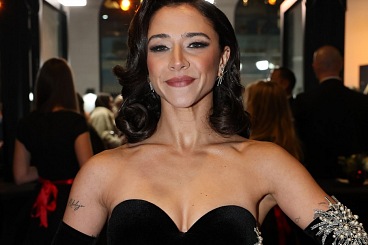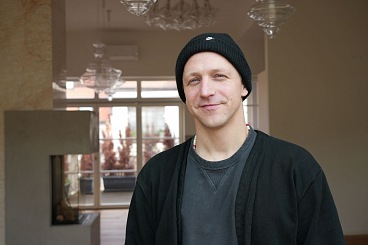Fast Confession - coach Michal Břetenář: I play sports with a defibrillator in my body
The likeable fitness trainer Michal Břetenář works with well-known professional athletes, yet he had to quit his own top sport career. In the interview for LP-Life.com, the former professional boxer talked not only about his congenital heart defect, but also about how important it is to breathe properly in sports. He himself must focus on this issue if he wants to train his clients well, but also engage in sport activities himself, with a defibrillator in his body.
How big of a role does proper breathing play in sports?
I won't say it's the biggest role, but it's definitely a parameter that in my case ranks very high.
Is it better to breathe with your chest or with your abdomen?
It depends on what you expect from it and when you implement this breathing stereotype. It's one thing to do it calmly and in a controlled way, and it's another thing to do it during a heavy load. For instance, during rest training and physiotherapy, you have total control over where you let the air flow, but if you take a top athlete, such as a soccer player who sprints across the field or a hockey player who is on the ice for a minute weakened 5 on 3, the last thing the boys are thinking about is where the air flows. When you look at them, most of them hold their breath, they are fighting for strength and it has nothing to do with the economy of movement. I've learned not to look at it from the perspective of an ideal, but I'm trying to at least explain to them that if they remember it from time to time, it will help them.
Is it better to breathe through your nose or mouth?
Both are right and both are wrong. Again, it depends on what you're training.
So how do you breathe properly, let's say, when working out?
This question is for a separate interview on its own. Because everyone can imagine something else under working out. But in short, you will use completely different breathing patterns for training, like for 1-3 repetitions, and for training in submaximal load, when you lift the barbell for a certain time.
And what about running?
When it comes to recreational running, it depends on the pace and terrain. Ultramarathoner Scott Jurek breathes through his nose so he can eat while running, and it works for him, but if I should recommend something, it's to not talk and breathe through your mouth.
Would you recommend other people to practice yoga, which is literally built on breathing?
Absolutely. I exercise it myself as much as possible and attend it for several reasons. I can turn my head off completely and relax there, even though yoga is physically demanding, it also distracts me from the things around me and I devote myself fully to myself, thus concentrating better on movement and working with my breathing.
Would you find any other general positives in yoga?
Certainly. Yoga is great for relaxing the chest, among other things. But it's important to mention that there are several types of yoga, so if someone who likes hot or power yoga reads this, they don't might disagree with me, because those require a hard strain. And a big one! But if we were to talk strictly about classical yoga, it has huge benefits for me. Moreover, yoga is not about the ego and who can do what better, but it's about everyone doing what they can and no one tries to measures themselves to others. That's what's great about yoga. I even use some elements of yoga for various activation things before training top athletes.
So do you think yoga should be a part of every top athlete?
Yes. Whether through that relaxation or increasing the range of motion.
What are your thoughts on meditation breathing exercises?
Positive, because meditation, like yoga, is an ideal means of regeneration. In my opinion, meditation is more for the advanced athletes, if I may call it that, because you are already working with the little details and there is a need for absolute concentration. In addition, most athletes are extremely fixated on results, so when you send them to yoga or meditation exercises, they don't feel like they're doing anything. A lot of athletes also feel that yoga is for women, and the same goes for meditation exercises, that's an even higher level.
What are the most common problems associated with wrong breathing during sports?
If we have to call it a problem, it's asthma, which many athletes have no idea of actually having. If we are to call it a mistake, it is holding your breath and trying to push through it with force.
Are you training someone with asthma?
I can't say specific names because it wouldn't be appropriate, but yes, I do and all of them are at the same time athletes of a very high level. Sometimes athletes just come in saying they're just often out of breath and get more tired than others and don't know why. Only subsequent tests will reveal that the person in question has a problem. On the other hand, a large percentage of athletes come with the fact that they have asthma. But even with a few of those athletes, we managed to eliminate the so-called asthma, and after several years of them inhaling Ventolin, we were able to get rid of it completely. They probably never had asthma and there was a mistake on the part of their breathing stereotype.
So can the problem of asthma be eliminated in sports?
It depends on the amount of obstruction in there. Of course, for someone who has a big problem with it and does sports, it's necessary to consult it with a doctor. But there are degrees of asthma, where breathing exercises will suffice. When I first encountered it, I sent the athlete directly to the doctor because I thought I had made a mistake during the examination and it wasn't possible. There they did a specific examination and the asthma was confirmed. After the administration of Ventolin, there was an improvement of 20-30 percent, which is a huge number. The athlete had been overloaded for a long time, but despite his limit, he found a way to do the sport anyway and do it well.
Why do we feel a stabbing pain in our sides during sports?
Good question, but I can't answer it. There are several theories, but until recently there was no study to confirm the exact cause. If one has appeared in the last six months, I don't know, I wasn't looking for it.
You personally offer training with a breathing simulator. What exactly does it entail?
The base of the whole thing is that I do a spirometric examination of the client, on the basis of which we will choose the procedure. It is a very crucial examination for me, which reveals more than you can imagine. However, the breathing simulator itself strengthens the breathing system and teaches to keep the required volume of air at a certain frequency. But beware! Just because you've handled the training with the Spirotiger well doesn't mean that you will be able to use your breath correctly under a bigger load.
You're also doing physiological training. What does it specifically focus on?
I focus on removing limits. I'm looking for weak parts and I'm working on them. Whether it's strengthening the heart muscle, using oxygen in the muscles, accelerating regeneration during exercise, or structural remodeling, it's always based on the client data that I collect by regular monitoring.
On your social networks, you said that you have heart issues and you need a defibrillator. How much do these health problems limit you in training and sports?
I wouldn't say they limit me. Quite often, the limit is only in your head. On the contrary, I'm looking for a way to do sports with it, not a reason not to do sports. You know I'm not able to do some things ever again or they are dangerous for me now. But there are enough new things for me to do, such as running. So now I'm trying to prepare for a half marathon, which I would like to get to 1:45:00.
Can you really run a half marathon?
When I was after surgery, I asked them what I could still do. The doctors told me that I can't overdo it, but I could play sports with a reasonable intensity. When I asked them if I could run, they told me I could if I was reasonable about it. They just didn't expect me to want to run a half marathon and two hundred intervals. But I only needed the confirmation from them that I can run and the rest is my sort of bungee jumping.
Aren't you afraid that there might be some health complications?
Of course I'm scared of that, but I need that fear because I used to play top sports, so in my head I'm still thinking more about the results and I can't do things just because. At the moment, I'm doing it mainly to try to ease up the disease, because not much is generally known about it. There are a very few people with it, and when they found the disease, I had very high values. In the spring during the lockdown, I adjusted a lot of things to my liking as they made sense to me both physiologically and through breathing exercises. I took a big risk. But in September, they told me at the regular check-up, that my values had improved to normal so much that I didn't need heart medication at the moment, and it's also in my medical report. I have another check up in February, so we'll see.
How has your life changed since you heard the doctors' verdict?
Very much. I won't lie to you, I even cried because I found it unfair. If for nothing else, also because of my sister, who also has a defibrillator and takes heart medication, she has the same illness. And by having 3 cardiac arrests and having to have surgery, she actually saved my life, because I was boxing professionally at the time and didn't know about the disease. But looking back at it now? It's the best thing that could have happened to me. I got a second chance, which I use to the maximum. It changed my priorities, one suddenly understands what is really important. Thanks to it I have a job I love. It's about the way you adjust your thinking.
Currently, the coronavirus is the topic everywhere and I assume that you belong to the risk group. How do you respond to the coronavirus pandemic in general?
I'm definitely not underestimating it, but I have my own opinion based on coronavirus stories from my surroundings. As for me, I do everything I can to stay healthy, and if I get it, then I'll get it anyway. I'm not stressed by what is not one hundred percent in my power.


















